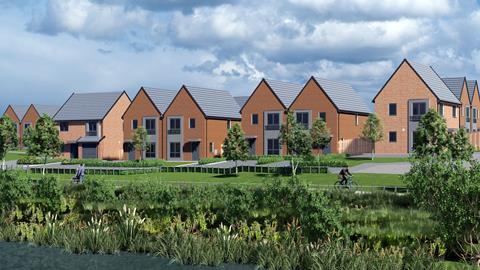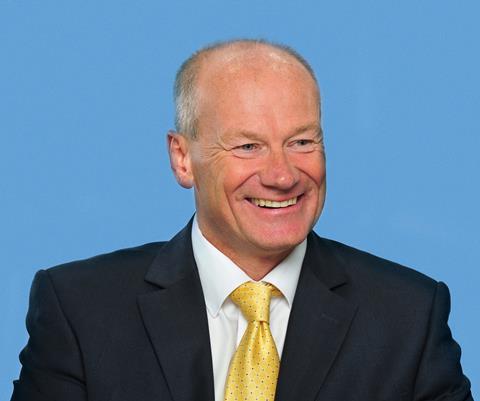But housebuilder says it has “consciously” slowed land buying and is looking for cost savings in response to market downturn
Vistry has said the value of its forward sales had soared 70% at the end of 2022 compared to the year before, despite the fourth quarter downturn in the housing market, showing the impact of its merger with Countryside.
Reporting an end of year trading update following a week of gloomy figures from rivals including Barratt, Persimmon, Taylor Wimpey, Crest Nicholson and Gleeson, Vistry said its forward sales position had grown to £4.6bn from £2.7bn the year before.

However, the business said it had consciously slowed its land buying activity and was looking at “cost reduction opportunities in its supply chain” in response to the slowing market at the end of last year.
Vistry said it will report adjusted pre-tax profit for the calendar year of £418m - £1m more than predicted and up a fifth on 2021 – and that its net cash position was ahead of expectations.
The business said its focus on partnerships housing – developing homes predominantly for public sector and housing association clients – meant its could deliver “resilient” and “less cyclical” performance which was “less sensitive to levels of open market demand”.
The firm added in the trading update that it was on course to deliver the promised £50m of “synergy” saving from the November 11 takeover of Countryside, which it has previously admitted will see the departure of around 100 staff.
>> See also Top 50 housebuilders 2022: In-depth analysis
>> See also Top 50 housebuilders 2022: Full tables
Vistry’s completions in its housebuilding division rose by 3% in the year to 6,774 homes, while the number of homes built by the partnerships business – now massively expanded again with the Countryside purchase – increased 17.6% to 2,455 homes.
The boss of the combined partnerships business – now known as Countryside Partnerships – told Housing Today in November the merger had brought the division’s growth plans forward by seven years and that further expansion was planned, in spite of the economic outlook.
However, Vistry said it was not immune from the downturn seen in the fourth quarter, and that forward sales in the housebuilding business specifically had dropped 24% from £1.3bn at the end of 2021 to £1bn now, after private housing reservations per site per week dropped to 0.46. Barratt last week reported forward sales down 29%, while Persimmon said forward orders were down 36%. Vistry said: “In the fourth quarter we saw demand for private sales reduce significantly reflecting the heightened level of macro uncertainty and step-up in mortgage costs,” adding that the reservation rate for the year was 0.71, compared to 0.76.
The firm said: “The rate of land acquisition in Housebuilding consciously slowed in the fourth quarter reflecting the increased level of uncertainty in the housing market.
“Our two businesses are firmly focused on cost reduction opportunities within our supply chain, including synergistic benefits, and best managing work in progress. The Group has a strong pipeline of land […] and will continue to secure land on a selective basis.”

Chief executive Greg Fitzgerald said The merger with Countryside in November was making excellent progress and provided a “transformative” opportunity for Vistry to accelerate its strategy of growing “high return, less cyclical revenues”. He said: “Despite the more challenging market conditions following the September mini-budget, profits are in-line with expectations and ahead of where we were at the start of the year.
He added: “It is too early in the current year to predict the outturn for private sales, however I remain cautiously optimistic that buyer sentiment will improve over the coming months.”
All the financial numbers for the 2022 financial year supplied by Vistry are for the Vistry business alone, and don’t include the contribution from the Countryside business from November 11.
Equity analyst Peel Hunt said in a research note released this morning: “The outlook for Partnership housing continues to look stronger than the mainstream market due to the large shortage of affordable housing. Vistry’s exposure to this sector is a clear differentiator to the rest of the sector and should allow it to outperform over the medium term.”










No comments yet